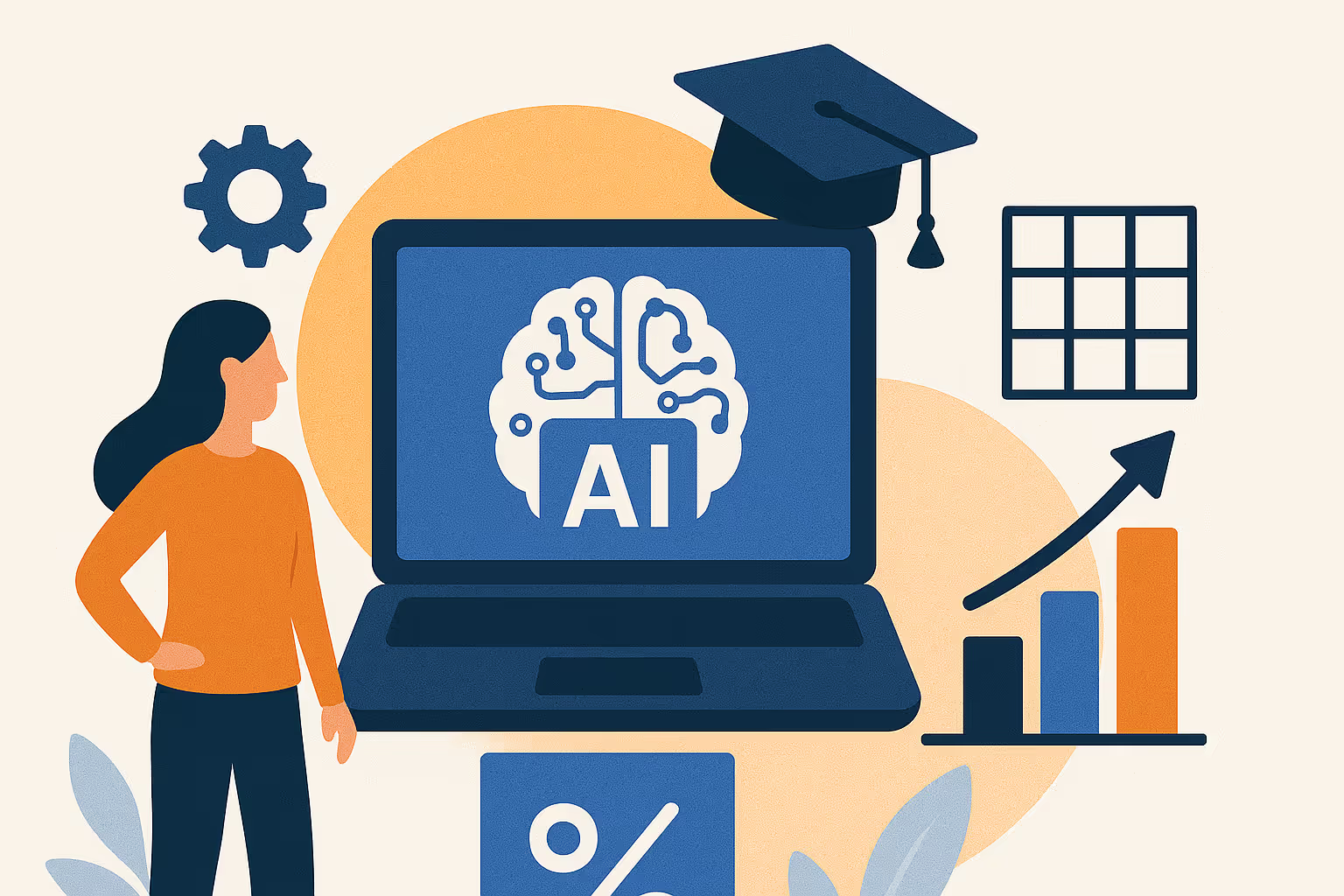About the Blog
The college application process can feel like a labyrinth for students, families, and admissions teams alike. Between endless forms, unpredictable timelines, and an overwhelming flood of applicant data, it’s no surprise that institutions are turning to artificial intelligence (AI) to streamline operations. But here’s the real question: Can AI make things easier and fairer?
The short answer? Yes. When done right, AI can reduce inefficiencies, personalize communication, and even enhance equity by helping institutions make smarter, more informed decisions, without stripping away the empathy and integrity students deserve.
Let’s explore how AI tools are transforming the application process and what enrollment marketers can do today to build a more streamlined, student-first journey.
"The Big 5" — AI Wins for Application Season
- Simplify Application Tracking: AI-backed CRMs can auto-prioritize and sort applicant data for faster, more accurate reviews.
- Use Predictive Analytics for Smarter Decisions: Data-driven insights help predict yield and identify high-potential applicants earlier.
- Personalize the Journey: AI tools automate tailored emails, texts, and reminders that speak to each applicant’s unique interests.
- Boost Fairness: AI models can be trained to spot biases and standardize reviews for a more equitable process.
- Free Up Human Time: By handling repetitive tasks, AI lets staff focus on authentic conversations and meaningful student engagement.
Application Tracking That Keeps Everyone on the Same Page
For most admissions teams, the struggle isn’t just managing a high volume of applications—it’s managing the right data at the right time. AI-integrated Customer Relationship Management (CRM) systems like Slate, Element451, and Salesforce Education Cloud help teams automate workflows, prioritize candidates, and reduce bottlenecks.
These tools can scan application materials, flag missing pieces, and even group applicants based on behavioral data or academic benchmarks. That means fewer manual tasks for your staff and a smoother ride for your students. No more lost transcripts or unanswered emails lingering in the void.
Most importantly, application tracking systems with AI capabilities allow your team to act in real time. When a student engages with an email or visits a program page, your team can follow up instantly, building trust and momentum without the lag.
Predictive Analytics: Making Decisions That Matter
What if you could tell—before applications are even complete—which students are most likely to enroll? That’s where predictive analytics comes in. By analyzing historical trends, engagement data, and academic performance, AI tools can help you identify which applicants are the best fit for your institution.
This doesn’t mean letting algorithms make decisions in a vacuum. Instead, it’s about empowering your staff with tools that inform their decisions. Imagine being able to estimate your incoming class yield with higher accuracy or knowing when to increase outreach to underrepresented students based on real-time interest signals.
Used wisely, predictive analytics can also help address inequities. Instead of relying on gut feelings or limited touchpoints, teams can use data to uncover students who may have high potential but limited access to traditional resources, making your recruitment process not just more efficient but also more inclusive.
Personalized Communication That Feels Like a One-on-One Chat
Let’s face it—students don’t want to feel like a number. They want to know that your institution sees them, understands them, and wants them there. AI-powered communication tools make that easier than ever.
Whether it's dynamic email campaigns, AI-driven chatbots, or SMS reminders tailored to where a student is in the process, automation can now deliver highly personal, human-like touchpoints at scale. And when implemented thoughtfully, these tools build stronger relationships, not robotic ones.
The secret sauce? Keep your messages human. Even if the delivery is automated, the voice, tone, and empathy should mirror the experience of a one-on-one conversation with a counselor who truly cares.
3 Practical Ways to Level Up the Applicant Experience with AI
- Audit your current communications flow. Where are the gaps? Are students waiting too long to submit an application and hear back? Use AI to identify and close those gaps.
- Segment your audience based on behavior, not just demographics. Tools that track email opens, campus visit sign-ups, or major page clicks help you customize messaging in a timely and relevant way.
- Use AI to track equity outcomes. Look beyond who’s applying to see who’s moving through the funnel. AI can surface disparities and help your team take meaningful action to close gaps.
At its best, AI isn’t about replacing human touchpoints—it’s about removing the clutter that gets in the way of them. When AI is used to eliminate redundancies, reduce bias, and personalize experiences, both students and admissions teams win.
Q: Can AI help make the admissions process fairer?
Yes—when designed thoughtfully, AI can reduce human bias by standardizing evaluations and highlighting high-potential students who might otherwise be overlooked.
Q: Will using AI in admissions make the process feel impersonal for students?
Not if done right—AI can actually enable more personalized, timely communication that helps students feel seen and supported throughout their journey.






.avif)



